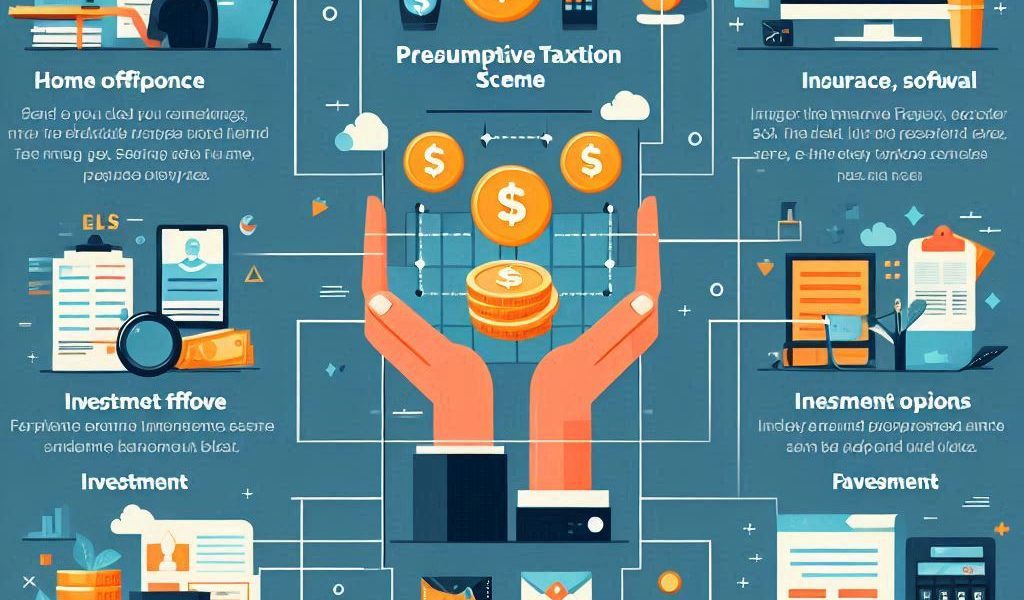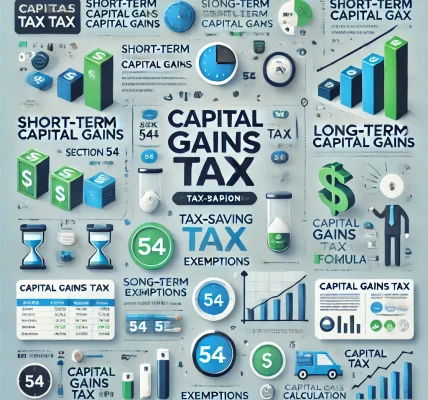Introduction
As a freelancer or self-employed individual, managing your finances effectively is crucial to ensure you don’t overpay on taxes while remaining compliant with tax laws. Unlike salaried employees, freelancers and business owners must handle their own tax obligations, including income tax, GST (where applicable), and deductions.
This guide will provide practical tax-saving strategies for freelancers and self-employed professionals, helping you legally minimize your tax burden while maximizing savings.
1. Understanding Your Tax Liability
Freelancers and self-employed individuals are required to pay taxes on their net income, which is calculated as:
Gross Income – Allowable Deductions = Taxable Income
Key Taxes to Consider:
- Income Tax: Based on individual tax slabs.
- Goods and Services Tax (GST): If annual turnover exceeds ₹20 lakh (₹10 lakh for specific states).
- Advance Tax: If tax liability exceeds ₹10,000 per financial year.
Understanding these components will help you plan better and avoid penalties.
2. Registering as a Business Entity
While freelancers can file taxes as individuals, registering as a business entity can provide additional benefits.
Common Business Structures for Freelancers:
- Sole Proprietorship: Simple and easy to manage but has unlimited liability.
- Limited Liability Partnership (LLP): Provides liability protection and tax benefits.
- Private Limited Company (Pvt Ltd): Best for scaling up but has higher compliance requirements.
Choosing the right business structure can help optimize tax benefits and protect personal assets.
3. Maximizing Tax Deductions
Freelancers can claim various deductions to reduce their taxable income. Here are some key deductions you should utilize:
1. Home Office Expenses
If you work from home, you can claim deductions for:
- Rent (proportional to the workspace used for work).
- Internet and electricity bills.
- Office furniture and supplies.
2. Professional Expenses
Expenses related to your profession can be deducted, such as:
- Website hosting and domain fees.
- Software subscriptions (Adobe, Canva, MS Office, etc.).
- Marketing and advertising costs.
3. Travel & Transportation
- If you travel for work (client meetings, networking events), those expenses can be deducted.
- Vehicle expenses (fuel, maintenance) can be deducted if used for work.
4. Health & Life Insurance Premiums
- Under Section 80D, health insurance premiums are deductible.
- Life insurance premiums qualify for deductions under Section 80C.
5. Retirement Contributions
- Investing in PPF, NPS, or EPF allows tax deductions under Section 80C.
- Contributions to National Pension Scheme (NPS) offer additional deductions under Section 80CCD(1B) (up to ₹50,000).
4. Keeping Accurate Financial Records
Maintaining proper financial records ensures that you can claim deductions without issues. Follow these best practices:
1. Maintain Digital Invoices & Receipts
Use accounting tools like QuickBooks, Zoho Books, or Tally to track income and expenses.
2. Open a Separate Business Bank Account
Avoid mixing personal and business transactions to maintain clear records.
3. Track GST and Tax Payments
If you are registered under GST, ensure proper filing of returns (GSTR-1, GSTR-3B) to avoid penalties.
5. Availing Presumptive Taxation Scheme
The Presumptive Taxation Scheme (PTS) under Section 44ADA simplifies tax calculations for freelancers.
Key Benefits:
- If your annual gross receipts are up to ₹50 lakh, you can declare 50% of the income as profit.
- No need to maintain detailed books of accounts.
- Reduces tax liability and compliance burden.
This scheme is beneficial for consultants, graphic designers, IT professionals, and other service-based freelancers.
6. Paying Advance Tax on Time
Unlike salaried employees, freelancers must pay Advance Tax if their total tax liability exceeds ₹10,000 in a year.
Advance Tax Payment Schedule:
| Due Date | Advance Tax Payable |
|---|---|
| 15th June | 15% of total tax liability |
| 15th September | 45% of total tax liability |
| 15th December | 75% of total tax liability |
| 15th March | 100% of total tax liability |
Paying advance tax on time helps avoid interest under Section 234B and 234C.
7. Smart Investment Strategies to Save Tax
Investing in tax-saving instruments helps freelancers reduce taxable income while building wealth.
1. Equity-Linked Savings Scheme (ELSS)
- Offers deductions under Section 80C (₹1.5 lakh limit).
- Shortest lock-in period (3 years) among tax-saving options.
2. Fixed Deposits (FD) with 5-Year Lock-in
- Tax-saving FDs qualify for deductions under Section 80C.
3. Public Provident Fund (PPF)
- Offers tax-free interest and deductions under Section 80C.
4. National Pension Scheme (NPS)
- Provides additional tax benefits beyond the ₹1.5 lakh limit.
8. Hiring a Professional Accountant
Tax laws can be complex, and an accountant can help ensure:
- Accurate tax filing and compliance.
- Maximized deductions to reduce taxable income.
- Efficient financial planning for future savings.
Hiring an accountant can help avoid costly mistakes and optimize tax savings.
Conclusion
Freelancers and self-employed individuals can legally reduce their tax burden by understanding tax liabilities, utilizing deductions, maintaining records, and investing smartly.
Key Takeaways:
✅ Keep track of income and expenses with accounting software. ✅ Utilize tax deductions on home office, travel, and insurance. ✅ Consider the Presumptive Taxation Scheme (Section 44ADA). ✅ Pay Advance Tax on time to avoid penalties. ✅ Invest in NPS, ELSS, and PPF for tax savings. ✅ Consult a tax professional to optimize tax planning.




